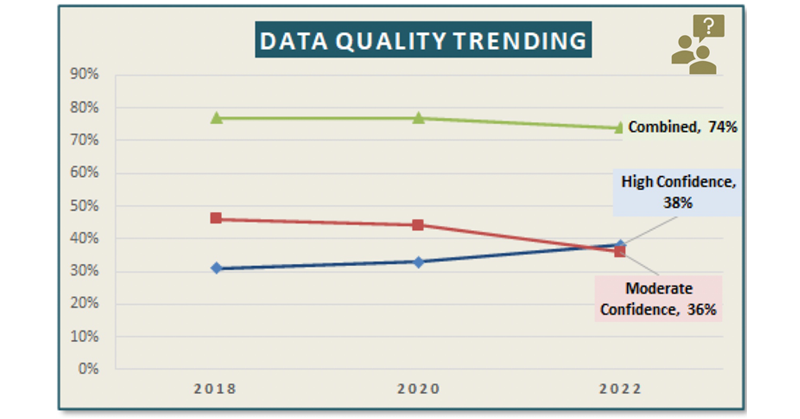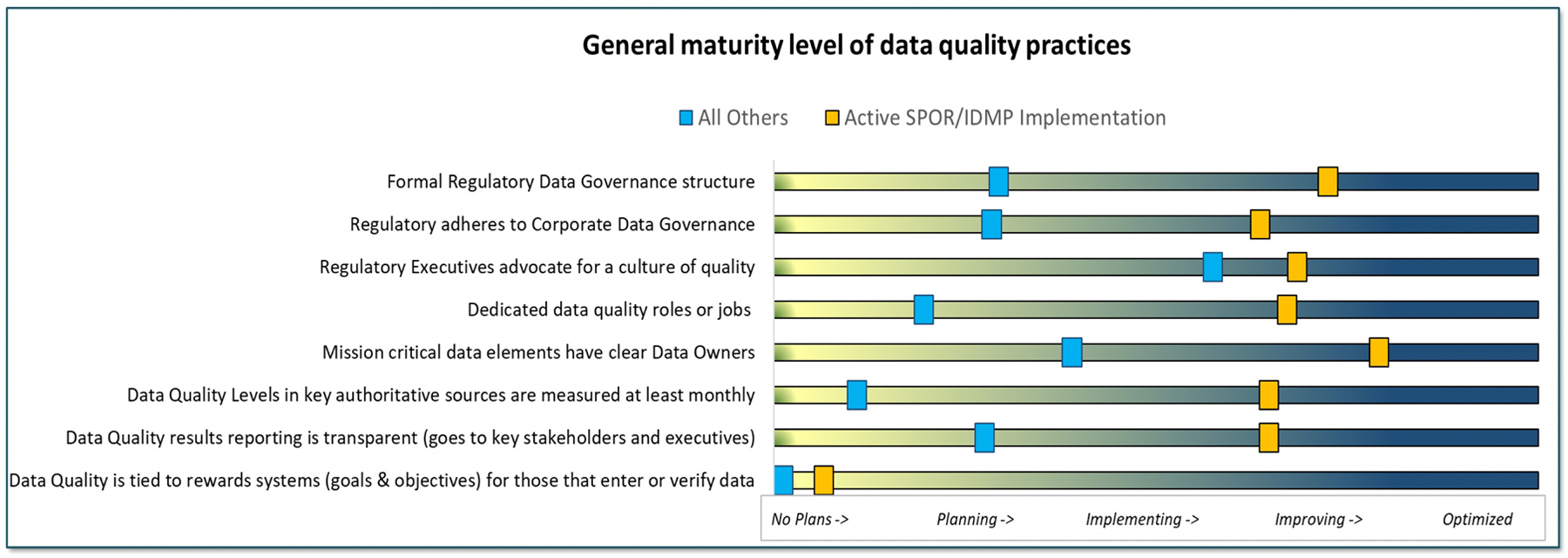The impact of Data Quality Sustainability on Data Quality Confidence
By Kelly Hnat
One of the key components of the World Class RIM rating is data quality confidence. Confidence in data quality is an indicator of the true effectiveness of regulatory processes and systems – if an organization has confidence in its data, it means the processes and capabilities supporting the management of that data are strong and trusted by the organization. And this confidence in turn positively impacts efficiencies (e.g., eliminating the redundant activities necessary to confirm information reported from a system), and is a critical foundational component to enable effective integration of cross-functional systems. Despite its importance, Data Quality Confidence has remained relatively unchanged over the past few years, as seen in the figure below. Across all the components we test, the aggregate score for high confidence is only 38% in our 2022 survey.
We believe Data Quality Sustainability and Data Governance are critical components to move the Data Quality Confidence needle forward, and so we wanted to better understand the state of practices within organizations around data governance and data quality to get a deeper view into what is going on. Gens & Associates has worked with many clients over the years in our consulting practice to help design or enhance data governance and data quality practices, which Steve Gens and Preeya Beczek have compiled into an excellent Data Quality Sustainability Model which is in our membership Executive Lounge. Leveraging this model, we developed two new questions in the 2022 survey focused on data governance and data quality practices. We were not surprised to find that the practices to achieve strong governance and data quality are still in early adoption across the industry.
In our analysis of the results, we focused on 8 key data quality capabilities to assess overall industry maturity:
- Formal Regulatory Data Governance structure
- Regulatory adheres to Corporate Data Governance
- Regulatory Executives advocate for a culture of quality
- Dedicated data quality roles or jobs
- Mission critical data elements have clear Data Owners
- Data Quality Levels in key authoritative sources are measured at least monthly
- Data Quality results reporting is transparent (goes to key stakeholders and executives)
- Data Quality is tied to rewards systems (goals & objectives) for those that enter of verify data
The results across industry show that these practices are currently in planning or early implementation stages. Knowing that many of these practices would be necessary to support the more sophisticated integration and data management requirements of IDMP/SPOR, we wondered if organizations who are actively working on their IDMP/SPOR implementation might be a bit further along in the adoption of these practices. In fact, they are quite a bit ahead, as chart below shows. And the aggregate data quality confidence score for these organizations is 44%, compared to just 26% for companies who do not have an active IDMP/SPOR project.
We believe that effective data quality sustainability and data governance programs will prove to be a key factor in moving the needle on data quality confidence, and because of the demands of structured data submissions we anticipate that more and more organizations will be launching efforts to implement these capabilities. In fact, 55% of companies reported that they are currently working on formal Data Governance for Regulatory information, and another 28% plan to start within two years.








